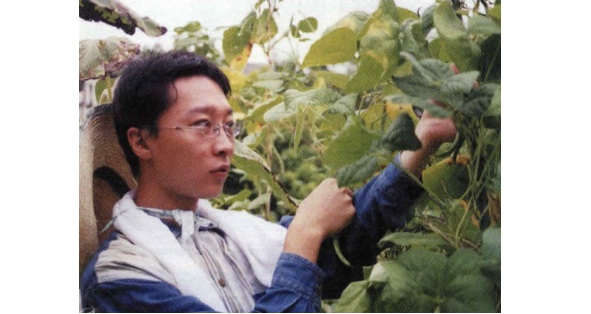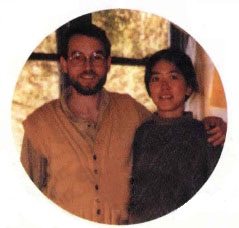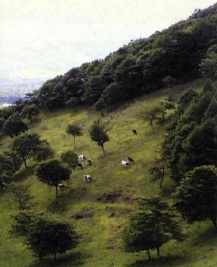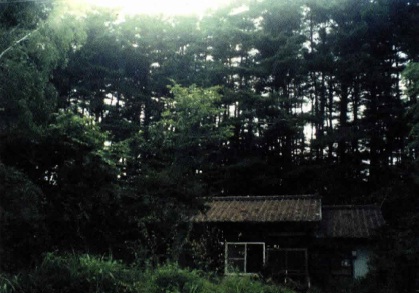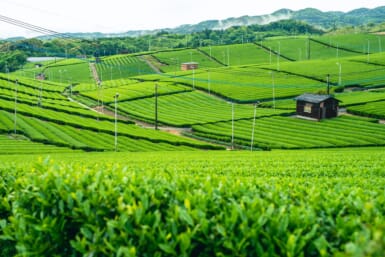by John Domokos
WWOOFing is a unique travel experience that’s good for the body and soul – and the wallet.
At the height of 1980s consumerism, Glenn and Kiyoko Burns decided they didn’t want to break the bank on a honeymoon. So while other newly-weds went on romantic cruises and stayed in idyllic chalets in the Caribbean, they were in boots and jeans getting muddy on an organic farm in Australia. “People laugh at me when I tell them,” says Glenn, “but it really inspired us.” Looking for an alternative, unique and enriching kind of experience, they became WWOOFers.
What was that?
That’s WWOOF, standing for Willing Workers on Organic Farms.” The organization rose out of the ashes of the hippie movement in the early ’70s, but embraced a sensible, real-world attitude. You can’t just live off free love, and there are no free lunches. WOOFers work on an organic farm for up to six hours a day and receive room and board in exchange.
But it is much more than just work for food. It is an unusual opportunity to learn about self-sufficient, organic farming methods and to exchange your culture and ideas with those of the hosts. As the organization has grown, the WW has come to mean “World Wide,” and there are thousands of hosts in countries all around the world.
Think organic
The “Organic” in WWOOF refers not just to the vegetables, but also an organic way of thinking. This means awareness of ecological and environmental issues, an open mind to other cultures and ways of doing things, and a willingness to work with the spirit of give-and-take.
WWOOF is heavily influenced by the “permaculture” movement (the word combines “agriculture” and “permanent”). Permaculture promotes responsible and sustainable ways of farming and living, and it has been taking root around the world, particularly in countries such as Cuba and in Africa.
Glenn and Kiyoko were so inspired by their experience, they went on to study permaculture and eventually founded WWOOF Japan in 1993. Just after the bubble economy, there was still a lot of money sloshing around, and it was hard to get anyone to listen. Ten years on, the good times still haven’t returned and the message is getting through. “Young people are sick of it all, and they are starting to see the need for an alternative lifestyle and attitude.” There is no better way to learn the alternative than to go and live, work and breathe it.
Where can you do it?
There are currently around 40 host establishments in Japan, most of which are organic farms. But there are a whole range of other places, including ski resorts, yoga and meditation temples, rafting resorts, coffee farms, welfare centers and even city locations.
The work you will do is similarly varied, from planting seeds and pulling up weeds, to feeding the animals, building a new shed for them, cooking, cleaning, writing letters, doing accounts, or just talking to people – in short, anything that needs to be done.
What the hosts all share is the commitment to a simple, sustainable lifestyle and a desire to share their culture, ideas and lives with other cultures.
WWOOF Japan is always seeking new hosts, in all locations and in any business. All you need to be a host is to be able to provide bed and board, have work that needs doing and, of course, you need the WWOOF spirit.
Why spend your holidays WWOOFing?
In many ways, life in Tokyo is about as far removed from nature as you get. You catch a crowded train to work, sit in an office, eat fast food for lunch… If your experience of farm life extends to reading Tess of the D’Urbavilles, it’s time to try some-thing new.
Wake up early and breathe clean, morning air. Do a hard but rewarding day’s work, learning skills and methods you will never learn in the city. Practice your Japanese in the most authentic situations possible, forming lasting bonds with people you work and eat with (although Japanese is not required for most placements).
Ah yes, the food. Nothing tastes better than the fruits of your own labor, especially when it’s organic, fresh, home-cooked and comes after a day in the field. “It really is the deepest, most genuine experience possible,” says Glenn.
And if you are not sold on all that, consider the cost. A year’s WWOOF Japan membership will set you back a mere ¥4,000. Some WWOOFers have gone for a one-month placement and stayed on for a full year, all for cheaper than a one-month cell phone bill.
What do you need?
You will need a good pair of boots, gloves and working clothes. And don’t be afraid to get dirty. A few places may also require you to bring a sleeping bag. As the hosts have an interest in you and your home country, it’s nice to bring some photos and souvenirs from home.
Most of all, you need to bring good will, an open mind and a willingness to work, learn and share. Any extra baggage should most certainly be left at home.
A growing movement
Glenn and Kiyoko have visions of a big WWOOF center in Japan, where people can take courses on permaculture and learn various skills and crafts. Attitudes are changing in Japan, and the organic movement is gathering pace. “We stand on the edge of something great,” says Glenn.
If you are tired of the usual packaged holidays, and you feel life in Tokyo is leaving you disconnected from the real world, try a couple of weeks of graft on a farm. As one WWOOFer says, “I’d never say it’s easy, but it’s the most difficult things in life that teach you the most.”
And if you really like it, you just might end up quitting the day job, as did Glenn and Kiyoko, and taking off on an organic adventure.
To find out more about WWOOFing in Japan and around the world, check out www.wwoofjapan.com or write to [email protected].
A one-year membership costs ¥4,000, giving you access to the list of host establishments and the members-only part of the website.

